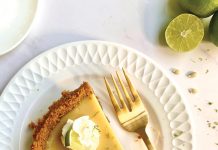
People have been talking about the power of seeds for thousands of years. In fact, Mayan and Aztec warriors used seeds as their sole source of food when traveling long distances. Considering a seed contains the embryo of a future plant, it is no wonder they are packed with nutrients and vitamins.
Although small in size, seeds are great sources of protein and fiber, monounsaturated and polyunsaturated fats (the good ones), and omega-3 fatty acids. They can help balance blood sugar, maintain a healthy weight, lower blood pressure, reduce cholesterol, and lower the risk of heart disease, cancer, Alzheimer’s, and Parkinson’s.
Just adding 2 tablespoons of seeds to your diet each day can make a huge difference. Blend them into a smoothie or salad dressing, bake them into a bread or sweet treat, or sprinkle them on top of a salad, oatmeal, yogurt, or soup.
Sprouted seeds are particularly good for you. In this stage, the seeds have just begun to sprout or germinate through controlled soaking for a few days. This process breaks down some of the starch, making them easier to digest and the nutrients easier to absorb. You can buy sprouted seeds at most health food markets or sprout them at home yourself.
Read on for more tips and recipes.
 How to Sprout Seeds
How to Sprout Seeds
1. Add 1/4 cup seeds to a glass jar with cool water. (A mason jar works best.)
2. Cover with a sprouting lid or a cheesecloth and secure.
3. Leave for 24 hours.
4. Drain and rinse seeds in a colander. Place them back into the jar with a cheesecloth top. Place the jar on a kitchen counter that is out of direct sunlight.
5. Repeat the rinsing and draining process each day for five days.
6. After five days, rinse seeds in a bowl and use your hands to gently remove the hulls.
7. Allow the seeds to dry on a towel surface before eating.
The Healthiest Seeds
Flax: Rich in omega-3 fatty acids, which reduce inflammation.
Chia: Loaded with antioxidants, calcium, and fiber.
 Quinoa: Rich in protein and magnesium. A cup contains 30 percent of the recommended daily intake of magnesium.
Quinoa: Rich in protein and magnesium. A cup contains 30 percent of the recommended daily intake of magnesium.
Sunflower: 2 tablespoons provide 50 percent of the recommended daily intake of vitamin E, an antioxidant that plays an important role within our bodies. Also rich in vitamin B6, magnesium, and zinc.
Pumpkin: 2 tablespoons provide 40 percent of the recommended daily intake of magnesium, which is necessary for maintaining gut health, proper digestion, and healthy levels of serotonin in the brain.
Hemp: One of the best sources of plant protein and packed with omega-3s, vitamin E, and minerals like potassium, calcium, iron, and zinc. Just 2 tablespoons of hemp seeds contain 20 percent of the recommended daily intake of the immunity-boosting mineral zinc.
Basil: Basil seeds are chia’s top competitor, containing twice the fiber, potassium, calcium, and iron.
Protein in Seeds (Per 2 Tablespoons)
• Flax: 4 g
• Chia: 6 g
• Sunflower: 4 g
• Pumpkin: 4 g
• Hemp: 8 g
• Basil: 5 g

Seed Crackers
Ingredients
- 1 cup almond flour
- 1/4 cup raw pumpkin seeds
- 1/4 cup raw sunflower seeds
- 2 tbsp. ground flaxseed
- 2 tbsp. chia seeds
- 2 tbsp. hemp seeds
- 1 tbsp. sesame seeds
- 1 tsp. garlic and herb seasoning
- 1/2 tsp. salt
- 1/2 tsp. baking soda
- 1/4 cup water
- 1/4 cup olive oil
Combine all ingredients in a food processor and pulse into a dough. Place the dough between two sheets of parchment and use a rolling pin to roll the dough into a 1/4-inch thickness. Place onto a parchment-lined baking sheet. Bake at 350 degrees Fahrenheit for 15-20 minutes. Allow to cool before breaking it apart by hand into cracker-size pieces. Enjoy with hummus, guacamole, or on their own.

Chia Seed Pudding
Ingredients
- 1/4 cup chia seeds
- 1 cup almond milk
- 1 tsp. honey
- 1/2 tsp. vanilla extract
Add all ingredients into a mason jar and shake or stir to combine. Transfer to fridge and refrigerate overnight (or for 6-8 hours). Top with fresh berries and seeds before serving.










Facebook Comments